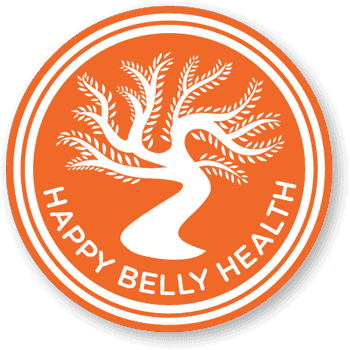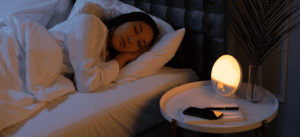We all know it: high-quality sleep is vital for both healing and sustained wellness.
While the body appears from the outside to be still and inactive, sleep is a time when the body is quite busy. During the night, we restock hormones, process toxins, repair tissue, fight infections, and process heavy emotions.
Unfortunately, we have an epidemic of sleep disorders, from trouble falling asleep to often-interrupted sleep to overt insomnia. There are, however, several straightforward remedies which can help.
This should always be pursued as a priority in any healing journey. Sleeping soundly also often increases our motivation to make further lifestyle changes (e.g. when well rested, it’s easier to eat healthily).
We fall asleep due to the gifts of the pineal gland, located deep in the center of the brain. Following our circadian rhythm, the pineal gland secretes a neurotransmitter and hormone called melatonin.
What is Sleep Hygiene?
Melatonin suppresses the activity of other neurotransmitters and calms the brain (in part by countering the stress hormone cortisol). As we become drowsier, the brain slowly begins to turn off our voluntary skeletal muscle functions, so we don’t move around too much and try to act out our dreams or disrupt the body’s internal revitalization work (also why it’s hard to move limbs or shout out in a nightmare.)
For ideal sleep, melatonin should be rising steadily, and cortisol should be quite low at bedtime. But there’s a catch: the pineal gland secretes melatonin largely in response to darkness.
Our evening cortisol levels are lowest in environments with low noise. With our addictions to TV, video games, email, and cell phones, however, our evening activity choices can get in the way of these natural pro-sleep chemical shifts.
These devices mostly display full-spectrum light which can confuse the brain about whether it’s night-time or not. Evening activities, unfortunately, also tend to be loud and/or stressful (e.g. the evening news, crime shows, work email, or ever-longer to-do lists).
How To Improve Sleep Hygiene?
We see over and over again the power of these “sleep hygiene” principles to improve or fully remedy poor sleep. Simple changes can be quite powerful. But making them habits takes discipline!
- Choose more calming, quieter evening activities that resonate with you and help you to relax, both mentally and physically (e.g. reading a book, taking a bath, going for a light stroll outdoors, cuddling with a pet, folding laundry).
- Turn off all full-spectrum lights for a full 1-2 hours before bedtime. Yes, this means no email, TV, or smartphone apps. You’ll be surprised at all the other enjoyable activities you’ll discover.
- Avoid amping up your brain. Avoid activities such as budgeting, next-day- planning, or stressful conversations in the full hour prior to bedtime. We also recommend no caffeinated food or drink at all after 2pm (e.g. tea (even green), coffee, soda, chocolate, mate); yes, depending on your unique ability to metabolize caffeine, it can affect you That Many hours later.
- Make it quiet, but not too quiet. If noise is an issue in your bedroom (too little or too much), try some soft foam or silicone ear plugs and/or the white noise of a fan.
- Mind the temperature. Rooms which are too hot or too cold tend to wake us up. In addition to waking us up to mess with the bedding, temperature extremes naturally increase our stress hormones which promotes wakefulness. Most people sleep best in a slightly cool room.
- Optimize your ability to breathe through your nose. Avoid allergens that may affect your breathing, which may indeed include the family pet. An air purifier is helpful to filter out dust, mold, pollen and other allergens. Simple tools like nasal strips or mouth taping may help to avoid snoring and/or mouth breathing. Rule out sleep apnea if snoring still persists.
- Quiet the digestion. This is a particularly powerful one that surprises many. For clients with insomnia or light, restless sleep, we suggest no food at all for a full three hours before bed.
- Have a relaxing ritual at night. Herbal tea (e.g. Tulsi, chamomile, valerian, passionflower), a hot bath with Epsom salts, and perhaps 10 minutes of gratitude journaling or inspirational reading.
- Be comfortable. You spend ~1/3 of your life in bed. It’s worth the investment in a bed, a pillow, and bedding that feels delicious to you, providing proper support for regular, deep, lengthy sleep.
If you would like some customized support to delve deeper into your health and nutrition, let’s chat.
© Purpose Inc., The School of Applied Functional MedicineTM







